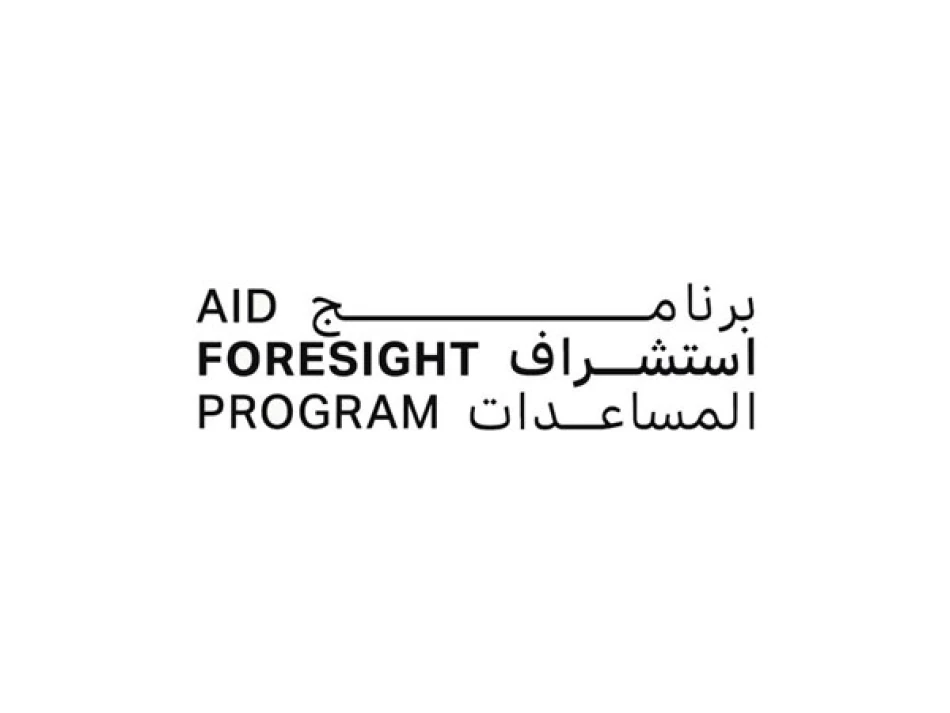
International Humanitarian Affairs Council Launches 'Aid Foresight' Program
UAE Launches Strategic Aid Program to Transform International Development Approach
The United Arab Emirates has unveiled an ambitious new initiative to revolutionize its foreign aid strategy, launching the "Aid Foresight Program" that brings together international experts and local organizations to reshape how humanitarian assistance is delivered globally. Running from September 29 to October 4, 2025, this comprehensive training program signals the UAE's intention to move beyond traditional aid models toward more strategic, impact-driven international development.
A New Framework for Strategic Philanthropy
The International Humanitarian Affairs Council, operating under the Presidential Office's Development Affairs Bureau, has structured the program around four core pillars: education, capacity building, knowledge exchange, and strategic communication. This framework reflects a sophisticated understanding that effective aid requires more than financial resources—it demands expertise, coordination, and long-term strategic thinking.
The timing is significant. As global humanitarian needs reach unprecedented levels due to climate change, conflict, and economic disruption, traditional aid models are increasingly questioned for their effectiveness. The UAE's approach suggests a recognition that future aid must be more targeted, measurable, and aligned with both donor capabilities and recipient needs.
World-Class Expertise Driving Innovation
The program's credibility rests on its lineup of international experts, each bringing distinct perspectives on modern development challenges. Beatrice Noval, a global governance consultant with experience at the World Bank and Inter-American Development Bank, represents the institutional knowledge of multilateral development finance. Her involvement suggests the UAE is serious about integrating best practices from established development institutions.
Bart Fontaine from Haven Foundation brings operational expertise, having evaluated Belgium's ENABEL2030 Africa cooperation strategy and developed higher education models across Mozambique, Ethiopia, and Angola. His participation indicates the program will focus on practical implementation rather than theoretical frameworks.
Perhaps most intriguingly, Hosuk Lee-Makiyama from the London School of Economics brings trade and technology expertise, regularly advising G7 and G20 governments on economic integration. His inclusion signals the UAE's understanding that modern aid increasingly intersects with trade policy, technology transfer, and economic diplomacy.
Strategic Positioning in Global Development
This initiative positions the UAE alongside other emerging development powers that are reimagining South-South cooperation. Unlike traditional Western aid models that often emphasize governance conditions and lengthy bureaucratic processes, the UAE's approach appears more focused on practical outcomes and strategic partnerships.
The program's emphasis on aligning national priorities with global needs reflects a mature understanding of development finance. Countries like China and Turkey have gained influence by ensuring their aid programs serve dual purposes—addressing recipient needs while advancing donor interests. The UAE seems to be adopting a similar strategic approach.
Institutional Participation Signals Serious Commitment
The caliber of participating organizations underscores the program's strategic importance. The UAE International Aid Agency, UAE Red Crescent Authority, and Abu Dhabi Fund for Development represent the country's primary aid delivery mechanisms. Their joint participation suggests this isn't merely a training exercise but a comprehensive strategy review.
The inclusion of organizations under the Zayed Humanitarian Legacy Foundation is particularly significant, connecting the initiative to the UAE's founding father's vision while modernizing its implementation. This blend of historical continuity and contemporary innovation could prove powerful in building domestic support for expanded aid commitments.
Market Implications and Future Outlook
For the broader development finance market, the UAE's initiative represents both opportunity and competition. International consultancies, technology providers, and development organizations may find new partnership opportunities as the UAE expands its aid footprint. However, traditional aid agencies may face increased competition from more agile, strategically-minded Gulf donors.
The program's focus on "tangible impact" suggests the UAE will likely emphasize measurable outcomes over process compliance—a approach that could influence how other donors evaluate aid effectiveness. This could accelerate the broader shift toward results-based development finance that many multilateral institutions are already pursuing.
As global aid architecture evolves beyond Western-dominated institutions, the UAE's systematic approach to building aid expertise positions it as a potential leader among emerging donors. The success of this program could establish a model for other Gulf states and emerging economies seeking to expand their international influence through strategic development assistance.
Most Viewed News

 Layla Al Mansoori
Layla Al Mansoori






